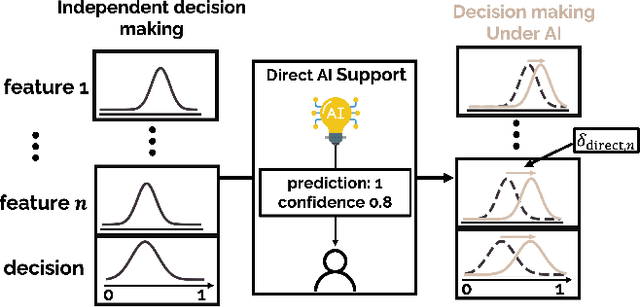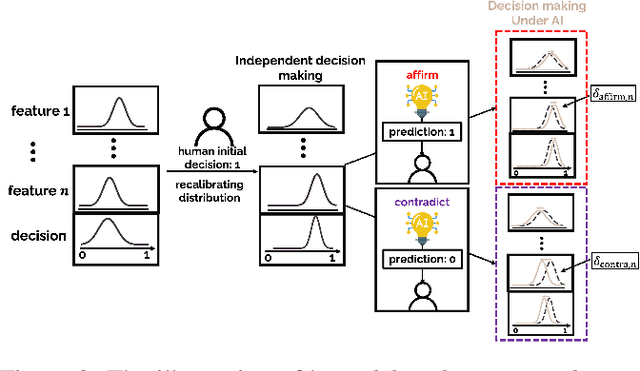Decoding AI's Nudge: A Unified Framework to Predict Human Behavior in AI-assisted Decision Making
Paper and Code
Jan 11, 2024



With the rapid development of AI-based decision aids, different forms of AI assistance have been increasingly integrated into the human decision making processes. To best support humans in decision making, it is essential to quantitatively understand how diverse forms of AI assistance influence humans' decision making behavior. To this end, much of the current research focuses on the end-to-end prediction of human behavior using ``black-box'' models, often lacking interpretations of the nuanced ways in which AI assistance impacts the human decision making process. Meanwhile, methods that prioritize the interpretability of human behavior predictions are often tailored for one specific form of AI assistance, making adaptations to other forms of assistance difficult. In this paper, we propose a computational framework that can provide an interpretable characterization of the influence of different forms of AI assistance on decision makers in AI-assisted decision making. By conceptualizing AI assistance as the ``{\em nudge}'' in human decision making processes, our approach centers around modelling how different forms of AI assistance modify humans' strategy in weighing different information in making their decisions. Evaluations on behavior data collected from real human decision makers show that the proposed framework outperforms various baselines in accurately predicting human behavior in AI-assisted decision making. Based on the proposed framework, we further provide insights into how individuals with different cognitive styles are nudged by AI assistance differently.
 Add to Chrome
Add to Chrome Add to Firefox
Add to Firefox Add to Edge
Add to Edge